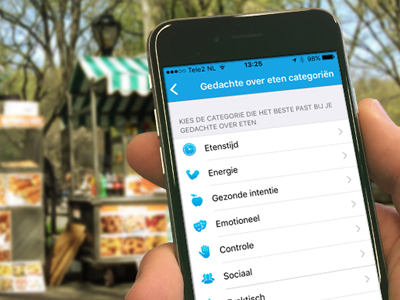Mobile Apps
Introduction
Mobile Apps provide a platform for in-situ, intensive long-term and large-scale experiments where easily accessible and intuitive user interaction is required. Apps for smartphones and tablets can be rapidly deployed to an unlimited number of users worldwide and provide a wide range of added functionality not available to web-based Apps(i.e. camera, motion sensors, location etc.).
In-situ sampling
Considering 55% of Europe’s population currently owns a Smartphone capable of running Mobile Apps, experiments that require event-based sampling, profit from a Mobile App implementation. Participants can fill in questionnaires, take pictures or record other data immediately whenever the targeted event takes place. Mobile Internet is not always required, collected data can be uploaded to a server at a later time when an Internet connection becomes available.
Long-term experiments
Some experiments can run over extended periods of time while unsupervised monitoring or user interaction should take place. Mobile Apps with a server back-end can provide this service while still allowing regular inspection of progress and adherence. Intermediate results can be extracted from the server, feedback can be provided to participants or participants can even be excluded from an experiment.
Smart Apps
Smartphones provide a powerful platform for performing complex calculations or analysis on collected data. Smart algorithms can be implemented to provide adaptive (situational) questionnaires or provide immediate feedback to participants. Autonomous systems can be developed to interact with users to enhance the user experience or allow therapy to be automated without intervention of a therapist.



